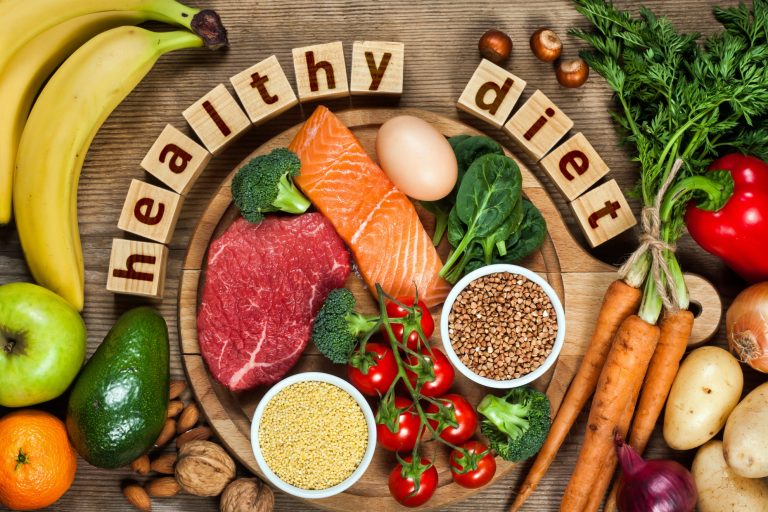A Balanced Diet – Minerals and Proteins

A balanced diet is essential to health
Table of Contents
Minerals
Various minerals in the Earth’s crust are required for a healthy balanced diet. These inorganic compounds have various roles or functions in the human body as well as in many other species (see a summary of essential minerals needed by plants). A summary of the main minerals involved in a balanced diet is outlined below:
- Iron – Iron is an essential constituent of hemoglobin. The hemoglobin is the molecule responsible for transporting oxygen in the bloodstream. It is also a part of cytochrome (an area important in cell respiration). Thus, it is an important mineral to have in our diet.
- Calcium – Calcium is required for strong bones and teeth. It is also essential in muscle contraction. Calcium can be found in various dairy products, such as cheese and milk.
- Sodium – Sodium is required by nerve cells. It is also used to produce hydrochloric acid that aids in food digestion.
- Iodine – Iodine is used to create thyroxine, a hormone that is partly responsible for controlling metabolic rate in the body.
Recommended reading: The Essential Elements from Science Learning Hub.
Proteins
As mentioned in the Cell Biology tutorial regarding the variety of proteins used in our body, it is essential that our diet contains proteins to achieve a healthy balanced diet. They are the building blocks of enzymes, hormones, and antibodies — all of which are essential in many biological processes.
Proteins consist of amino acids. Some of these amino acids are deemed essential as they cannot be synthesized from other materials and thus must be part of the diet.
Protein is abundant in dairy products, soybeans, meat, and cereal; which are all constituents of a healthy balanced diet.
You will also like...

Animal Water Regulation
Animals adapt to their environment in aspects of anatomy, physiology, and behavior. This tutorial will help you understa..

Plant Water Regulation
Plants need to regulate water in order to stay upright and structurally stable. Find out the different evolutionary adap..

The Water Cycle
The water cycle (also referred to as the hydrological cycle) is a system of continuous transfer of water from the air, s..

Adaptation Tutorial
Adaptation, in biology and ecology, refers to the process or trait through which organisms or the populations in a habit..

Plant Biology
Plantlife can be studied at a variety of levels, from the molecular, genetic and biochemical level through organelles, c..

The Origins of Life
This tutorial digs into the past to investigate the origins of life. The section is split into geological periods in the..
